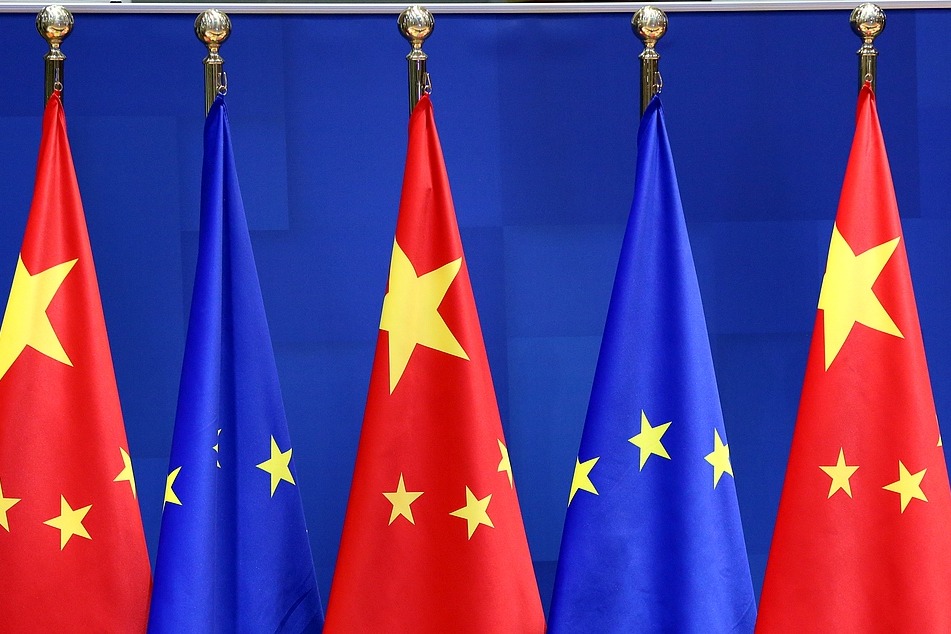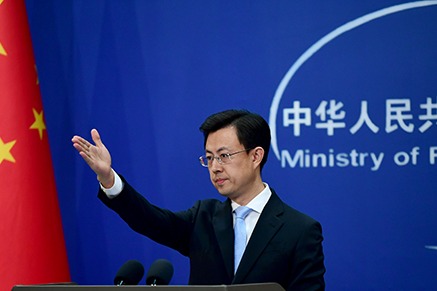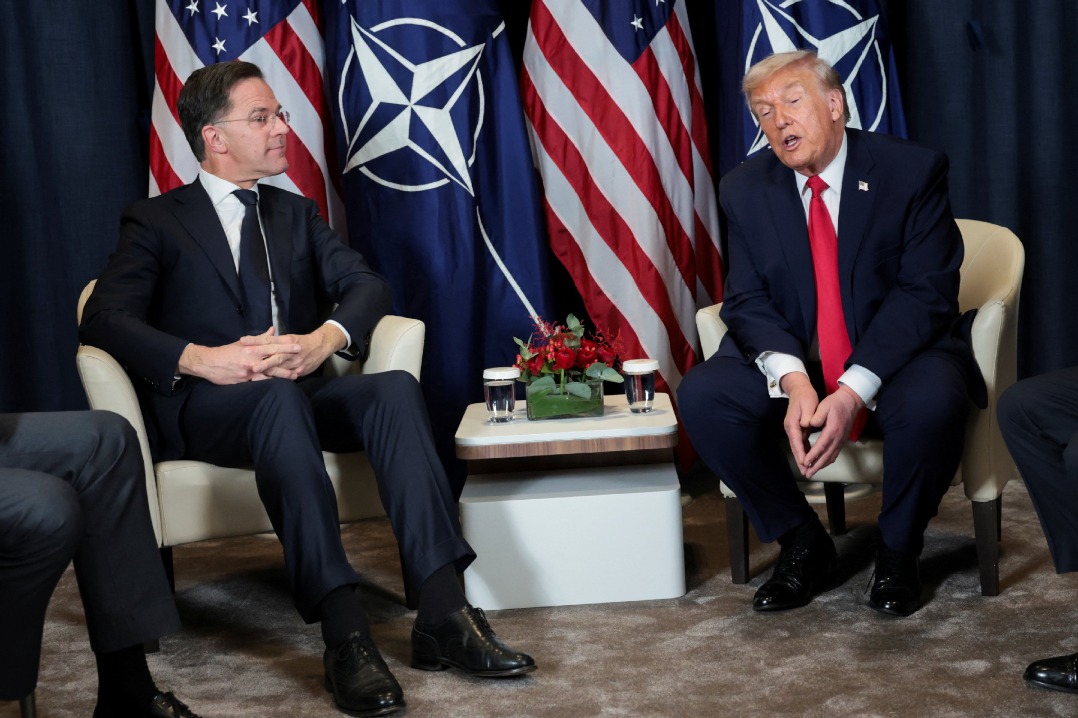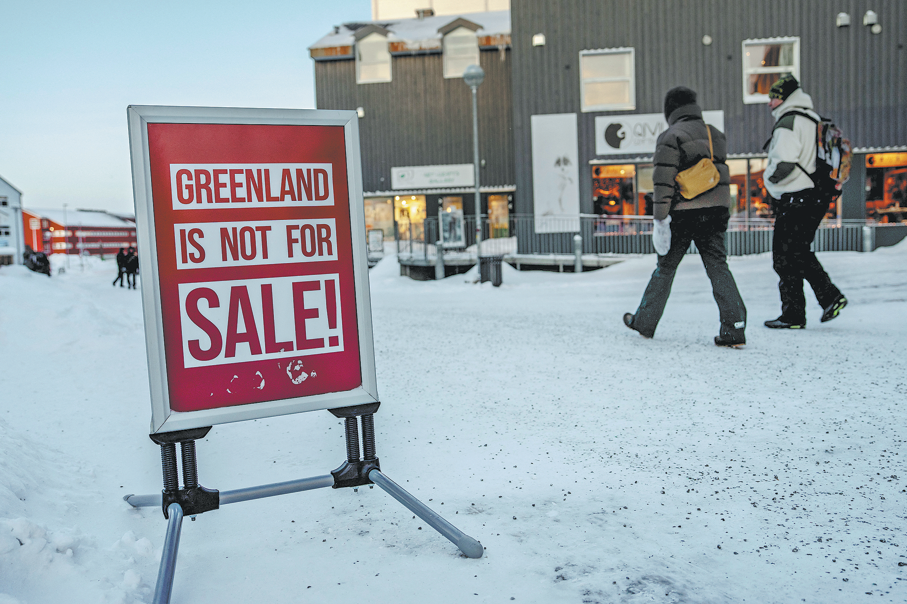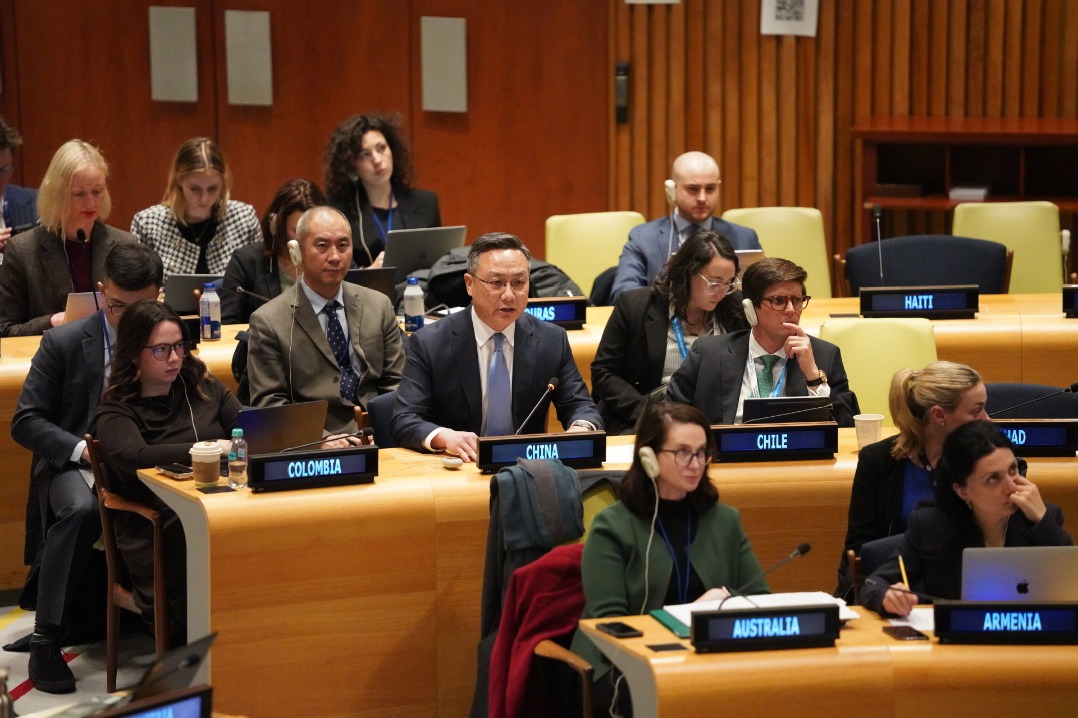Xi: BRI opens 'gateway to opportunities'

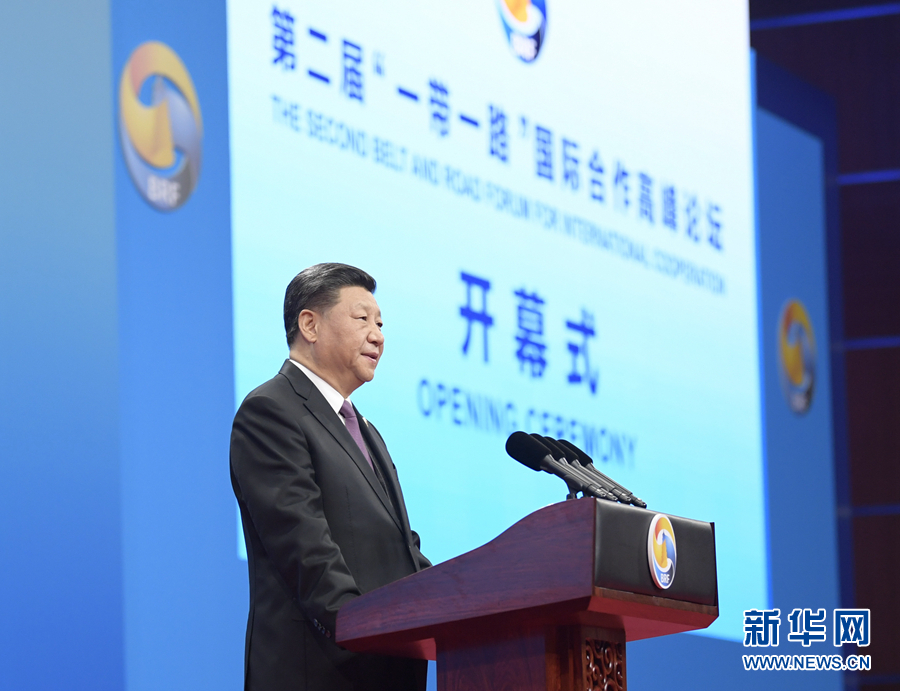
He calls for forging a partnership of 'global connectivity' and says initiative will focus on green infrastructure projects and financing
Connecting nations that can then work together to create a more prosperous future is one of the central aims of the Belt and Road Initiative, President Xi Jinping said.
"We should forge a global connectivity partnership to achieve common development and prosperity," he said at the opening of the Second Belt and Road Forum for International Cooperation at the China National Convention Center in Beijing on Friday.
"As long as we work together to help each other, even if thousands of miles apart, we will certainly be able to find a mutually beneficial and win-win road," he said.
In addition, at the conclusion of a leaders' roundtable meeting on Saturday, Xi told the media that the BRI has "opened a gateway to opportunities for common prosperity".
Nearly 40 heads of state or government, including Russian President Vladimir Putin, Italian Prime Minister Giuseppe Conte and Pakistani Prime Minister Imran Khan, took part in the three-day forum, which had the theme "Belt and Road Cooperation: Shaping a Brighter Shared Future". About 5,000 participants from more than 150 countries as well as 90 international organizations also took part.
A total of $64 billion in deals were concluded and signed during the forum. Since the initiative was launched by Xi in 2013, trade volume between China and participating countries has exceeded $6 trillion, with investments of more than $80 billion and creation of 300,000 jobs.
Xi also addressed some international concerns about the BRI and said it was important to focus on green and sustainable development.
"The goals of high-standard, livelihood-improving and sustainable development should be achieved," Xi said in his keynote opening address.
The meeting ended with the issuing of a joint communique of the leaders' roundtable.
The communique stressed the need for sustainable development, encouraging energy efficiency and the use of clean energy technology in the development of infrastructure so that additional environmental pressures are not put on the planet.
The communique also said it was important that projects are economically viable and that there should also be a role for multilateral development banks and other financial institutions, not just Chinese ones, to provide financial support for projects.
It also said the initiative supported anti-corruption cooperation and would work toward zero tolerance of corruption.
At the conclusion of the leaders' roundtable on Saturday, Xi told the media that international cooperation was vital for the Belt and Road to produce lasting results.
"We all supported the idea of developing a global partnership for connectivity and agreed to strengthen cooperation mechanisms. We all supported more pragmatic cooperation to achieve more concrete outcomes," he said.
The president was upbeat about what had been achieved at the forum.
"We spoke positively of the progress and significance of cooperation under the BRI. We shared the view that cooperation under the BRI has opened a gateway to opportunities for common prosperity," he said.
Klaus Schwab, founder and executive chairman of the World Economic Forum, who attended the event, said the Belt and Road had come of age at the forum.
"Now the BRI has become an adult, which means that it has become an important factor in the global economy. It has grown up."
Martin Jacques, the British academic and author of When China Rules the World, also attended the forum, as well as the first one in 2017, and observed a difference between the two.
"If you think of where it is now compared to 2017, it has come a long way. And you can see that in the number of leaders from around the world who attended," he said.
"There was less of an emphasis on this forum of a grand vision and more of an emphasis on the ideas that underpin the initiative and the practical steps that need to be taken to build on what has been achieved."
Jacques also said the narrative presented in some Western media that China was pursuing a form of debt diplomacy by burdening countries with loans was shown at the forum to be a shallow criticism.
"It really is nonsense. How can that be in China's interest? The initiative has been an extraordinary success. You can see this now with Europe moving incrementally but significantly toward an embrace of Belt and Road."
Rana Mitter, director of the University of Oxford China Centre, said Xi made clear at the forum that the Belt and Road needed to be part of a stable new global order and was not something that threatened or undermined it.
"There are a great many areas where China can make a contribution to developing the global south-quite often China is able to offer funding that other entities won't put up," he said.
"But it is also important that China makes sure that the countries that it deals with are full partners, and that their needs are mutually discussed, not simply imposed."
A number of the high-profile politicians who attended said the BRI had made considerable progress.
Prime Minister Khan of Pakistan-which is a major player in the Belt and Road, with major infrastructure projects in the China-Pakistan Economic Corridor-said the BRI was a lesson to others about what can be achieved by partnership.
"In a world of geopolitical uncertainty, of rising inequality and barriers to trade, the BRI offers a model of collaboration, partnership, connectivity and shared prosperity," he said in his address to the forum.
"The BRI marks a new and distinct phase in the onward march of nations of the world along the path of globalization."
Nursultan Nazarbayev, the first president of Kazakhstan, said the BRI was making an important difference to Central Asian countries in particular.
"China has had colossal success in socioeconomic development and has been a reliable partner in the international arena," he said.
"The BRI is based on long historical demands for security, trade and prosperity. The Silk Road is becoming a belt of prosperity and stability."
Malaysian Prime Minister Mahathir Mohamad said the initiative was a "great idea".
"Without doubt, the utilization of these routes will enrich all the states along the way. I am fully in support of the BRI, and my country will benefit from the project."
Xi, in his opening address to the forum, also renewed his commitment to the further opening-up of China's economy.
He said China would further lower its tariff rates and increase imports of goods and services, noting that the world's second-largest economy had the largest number of middle-income consumers in the world.
"A more open China will further integrate itself into the world and deliver greater progress and prosperity for both China and the world at large," he said.
An Baijie and Zhang Zhihao contributed to this story.
















